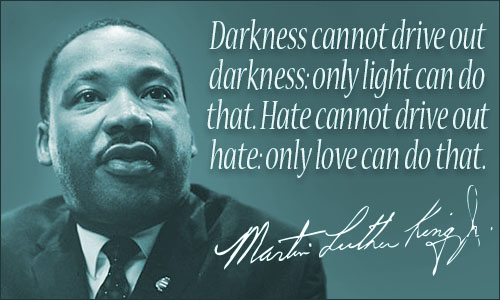Racism: Contrasting Cultural Marxism with Christianity

Racism seems to be a popular topic in the news and social media these days. Most of the time this takes the form of one person or group accusing another person or group of being racist. But this hasn’t always been the case. In the 80’s and 90’s, there was little talk about racism. I grew up believing, as our Declaration of Independence states, that all men (and women) are created equal, in terms of rights, value, and dignity. In my day-to-day life, I never personally witnessed anyone treating or speaking of others disparagingly based on race, culture, or class, and I just naïvely assumed that in America we had matured beyond racism and put it behind us with the civil rights movement of the 60’s.
So why do we hear so much more about racism today than we did a decade ago? I believe this is because cultural Marxism has become the predominant ideology of a large number of people, particularly those who control the media, education, entertainment and technology.
Marxism views the world according to power discrepancies. In its original form, these were defined according to socioeconomic-economic factors: the laborers vs. the business owners. Today’s cultural Marxism divides the world by race and culture. It envisions an oppressive ruling group — typically heterosexual white males — pitted against disenfranchised, oppressed minorities, such as blacks, women, Latinos, transgenders, and so forth.
Under cultural Marxism, minority groups are given unlimited license to exercise prejudice and discrimination against the dominant culture, and indeed are encouraged to do so as part of their “struggle against the oppressor”. None of this behavior can be labeled as racist, however, because cultural Marxism redefines racism as “power plus prejudice”. Therefore only members of the dominant group can be considered racist.
If you happen to be a member of the dominant culture, you are expected to be apologetic and self-ashamed, or else you are a bigot and a racist. Whereas if you belong to any of the “disenfranchised” groups, you’re expected to see yourself as a victim, to see others as bigoted, racist, and hateful, and to assert your rights and interests above those of the dominant group.
Thus cultural Marxism creates division by promoting so-called “identity politics”, and discriminatory and prejudicial behavior is not only condoned but encouraged, so long as you’re a member of one of the oppressed minorities.
But how does Christianity view racism? The book of Revelation states that in Heaven, people from every tribe and language and nation will worship God together (Rev 7:9). In the book of Galatians, the Apostle Paul writes,
In Jesus, all divisions are erased. There is neither Jew nor Greek: nationality, race, and ethnicity are irrelevant before God. Revelation 7:9 shows us that we will retain our national, cultural and linguistic identity, but our uniqueness will no longer be a cause for division; the barriers have been removed. There is neither slave nor free: likewise, divisions based on social class and economic standing are eliminated. There is neither male nor female: gender discrimination is done away with as well, for all are one in Christ Jesus. Jesus promotes unity, not division. In his letter to the Ephesians, Paul shows how this is applied between the Jews and the Gentiles, and by extension, all cultural groups:
As for discriminatory behavior, it is condemned entirely. Jesus’ brother James declares that such judgement proceeds from “evil motives” (James 2:4). He writes that “if you favor some people over others, you are committing a sin and are guilty of breaking the law.” (James 2:9) Instead, Jesus commands us to “love one another as I have loved you” (John 15:12), which is to say, self-sacrifically. Later in Ephesians, Paul writes,
According to Christianity, all people have sinned, without exception (Romans 3:23), and we are all equally guilty under God’s righteous law. But those who have put their hope in Jesus have all been equally redeemed by the blood of Christ, and there is no cause for any person to regard himself more highly than another. Toward those outside the Church, Christians remember thatCultural Marxism is, by its very definition, divisive, promoting strife and enmity between various groups of people. Though it redefines racism as applying only to the dominant cultural group, it actually encourages prejudicial and discriminatory behavior. Division and conflict are the immutable foundation of this worldview, without which it would cease to exist.
Christianity, on the other hand, promotes love and unity, regardless of race, ethnicity, nationality, culture, socioeconomic status, or gender. In Christ we share one love; we are one body, one family, and one race — the human race. The very foundation of Christianity is the love of Jesus, and the mission of the Church is to demonstrate His love to a lost and hurting world.
and His ears are open to their prayers



